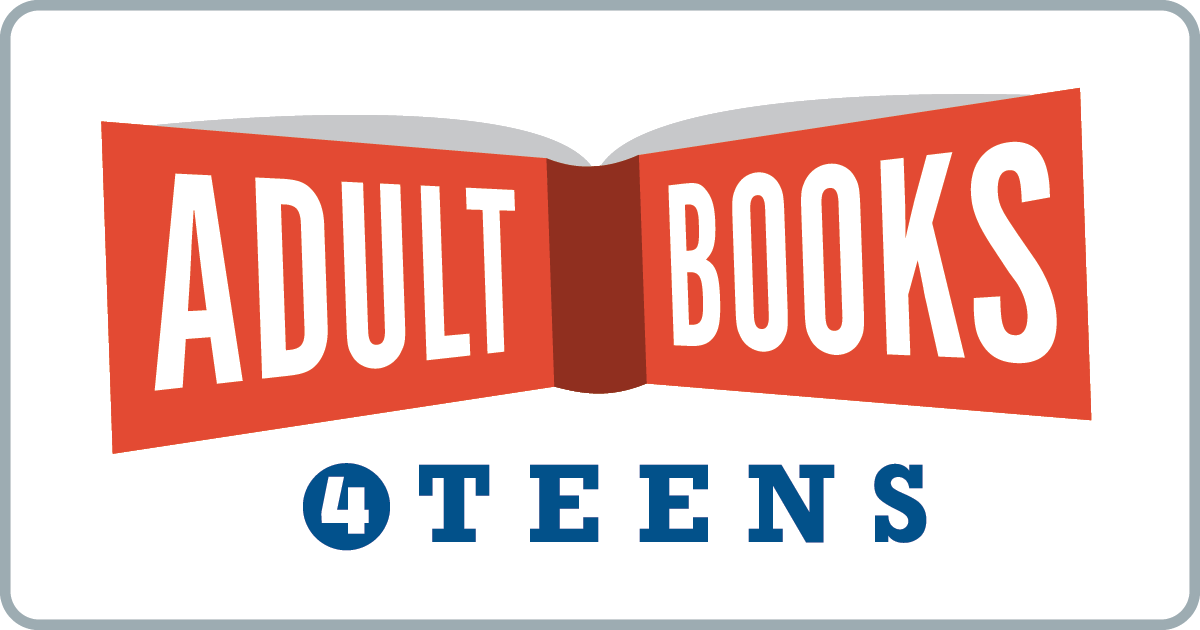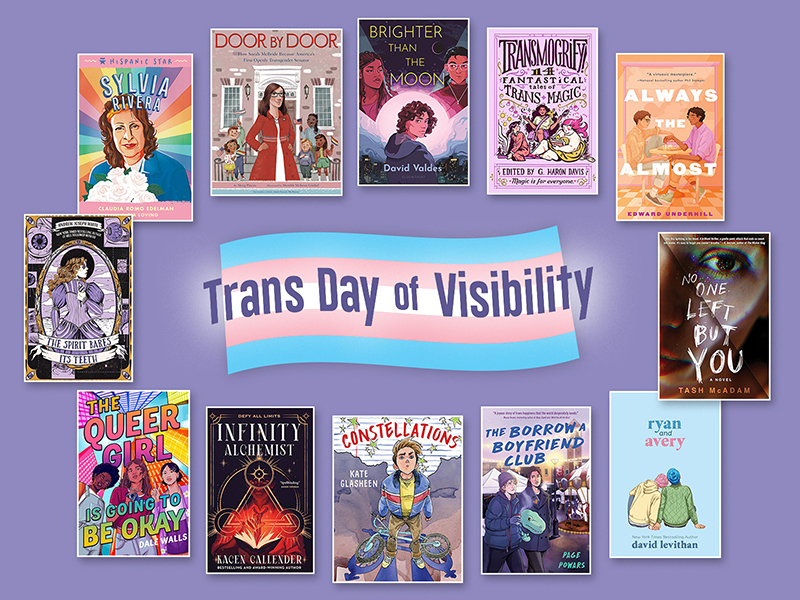SCROLL DOWN TO READ THE POST
Harrowing Memoirs, Part 2
Back in January, we looked at a pair of memoirs about young lives stolen through abuse and disease, and today we have two more memoirs touching on the same themes, along with a third which looks at the threat of the law. Unlike Elizabeth Smart’s somewhat older story, the tale of the captivity and dramatic freeing last year of Michelle Knight and two other young women–especially the famous role played by neighbor Charles Ramsey–is likely well-remembered by teens. Less well known is precisely what happened to these young women in the home of their captor, Ariel Castro. Knight’s memoir, heartbreaking as it is, is essential reading for those who want to know more about the case.
Eileen Cronin’s memoir tells a very different story of broken youth, traumatized by physical and emotional disabilities. The physical disability was her own–born with legs ending right around her knee (an impairment possibly caused by the infamous pregnancy drug thalidomide)–while the emotional impairment was her mother’s mental illness, sometimes resulting in hospitalizations, and her father’s urge to draw away from the drama brought on by these problems. Nevertheless, Cronin was able eventually to flourish and write this extraordinary memoir which should captivate teens.
ADVERTISEMENT
ADVERTISEMENT
Finally, we have Jose Angel N.’s “Reflections of an Undocumented Immigrant”. Jose is not physically impaired in the way McKnight and Cronin were and are, but he is virtually limited in all he can do by the long arm of the law. As and undocumented immigrant, Jose is constantly on the look-out for ways in which he may be deported. His story brings a much needed face and voice to the far too abstract debate over immigration reform.
KNIGHT, Michelle with Michelle Burford. Finding Me: A Decade of Darkness, a Life Reclaimed. 249p. Weinstein Bks. May 2014. Tr $24.99. ISBN 9781602862562.
 Horrendous is a word too mild to describe Knight’s 11-year ordeal with convicted Cleveland kidnapper and rapist Ariel Castro. Knight’s story, unlike those of Elizabeth Smart (My Story; St. Martin’s Pr., 2013) and Jaycee Dugard (A Stolen Life; S. & S., 2011), was horrendous even before she was kidnapped. Rarely going to school, often hungry, she grew up living with 12-15 extended family members, drug activity, and daily molestation. She ran away and lived under a bridge until a drug dealer “hired” her in exchange for a place to live. At 16, Knight became pregnant—she believes by a popular football playing teen who befriended and betrayed her—and gave birth to her son. It was the memory of her son that kept her sane during her traumatic experience with Castro. This memoir is more graphic (yet not gratuitous) than Smart or Dugard’s books in her descriptions of the abuse: multiple chains around her body at all times, padlocked to a pole in the dark basement, moldy socks in her mouth, a motorcycle helmet on her head and left for days in the dark, unable to shower or bathe for eight months. It’s the stuff of nightmares. The straightforward accounting will engage teens who love gritty and gory details. The brief information about her rescue at age 32 and her transition to a new life will pique teen interest and will have them following this survivor’s tale, especially if she continues to go public about her experiences.—Amy Cheney, Alameda County Library, Juvenile Hall, CA
Horrendous is a word too mild to describe Knight’s 11-year ordeal with convicted Cleveland kidnapper and rapist Ariel Castro. Knight’s story, unlike those of Elizabeth Smart (My Story; St. Martin’s Pr., 2013) and Jaycee Dugard (A Stolen Life; S. & S., 2011), was horrendous even before she was kidnapped. Rarely going to school, often hungry, she grew up living with 12-15 extended family members, drug activity, and daily molestation. She ran away and lived under a bridge until a drug dealer “hired” her in exchange for a place to live. At 16, Knight became pregnant—she believes by a popular football playing teen who befriended and betrayed her—and gave birth to her son. It was the memory of her son that kept her sane during her traumatic experience with Castro. This memoir is more graphic (yet not gratuitous) than Smart or Dugard’s books in her descriptions of the abuse: multiple chains around her body at all times, padlocked to a pole in the dark basement, moldy socks in her mouth, a motorcycle helmet on her head and left for days in the dark, unable to shower or bathe for eight months. It’s the stuff of nightmares. The straightforward accounting will engage teens who love gritty and gory details. The brief information about her rescue at age 32 and her transition to a new life will pique teen interest and will have them following this survivor’s tale, especially if she continues to go public about her experiences.—Amy Cheney, Alameda County Library, Juvenile Hall, CA
CRONIN, Eileen. Mermaid: A Memoir of Resilience. 336p. W.W. Norton. Jan. 2014. Tr $26.95. ISBN 9780393089011. LC 2013036717.
 Back in 1960, who knew that thalidomide—even one dose—could cause serious birth defects? Certainly not Cronin’s mother, who may (or may not) have taken a dose (or more than one) in Germany (or possibly under her ob/gyn’s direction in the United States). Eileen is the only one of the 11 Cronin children to have been born with physical problems—her legs are stubs—and as a result grew up resourceful (“squiddling” around the house) and bratty. Complicating family life was her mother’s mental illness, so severe it led to several hospitalizations, and her father’s growing need to get away from the drama. It is to Cronin’s credit that she looks at her childhood unflinchingly, not glossing over her own behavior but showing how, as she grew, she changed. It’s clear that leaving Cincinnati and her family for Boston was the making of her; here is where she grows as a person, developing the confidence to live independently, and then finally confronting the issue of whether or not she was a thalidomide baby. Teens today may not know about the drug and how, in the rush to bring this “miracle” to pregnant women, testing was slipshod and as a result, thousands of children were born with some deformity, ranging from limbs to malformed hearts and heads. This memoir will increase empathy in teens as well as inform them about the need to fully investigate new medicines.—Laura Pearle, Miss Porter’s School, Farmington, CT
Back in 1960, who knew that thalidomide—even one dose—could cause serious birth defects? Certainly not Cronin’s mother, who may (or may not) have taken a dose (or more than one) in Germany (or possibly under her ob/gyn’s direction in the United States). Eileen is the only one of the 11 Cronin children to have been born with physical problems—her legs are stubs—and as a result grew up resourceful (“squiddling” around the house) and bratty. Complicating family life was her mother’s mental illness, so severe it led to several hospitalizations, and her father’s growing need to get away from the drama. It is to Cronin’s credit that she looks at her childhood unflinchingly, not glossing over her own behavior but showing how, as she grew, she changed. It’s clear that leaving Cincinnati and her family for Boston was the making of her; here is where she grows as a person, developing the confidence to live independently, and then finally confronting the issue of whether or not she was a thalidomide baby. Teens today may not know about the drug and how, in the rush to bring this “miracle” to pregnant women, testing was slipshod and as a result, thousands of children were born with some deformity, ranging from limbs to malformed hearts and heads. This memoir will increase empathy in teens as well as inform them about the need to fully investigate new medicines.—Laura Pearle, Miss Porter’s School, Farmington, CT
N., José Ángel. Illegal: Reflections of an Undocumented Immigrant. 136p. (Latinos in Chicago and Midwest). Univ. of Illinois Pr. 2014. pap. $19.95. ISBN 9780252079863. LC 2013032194
 An undocumented immigrant tells his story of crossing the Mexico/United States border as a teen. N. found his way to Chicago where he worked and lived in the shadows—in factories, yards, and restaurants. Taking ESL classes, he obtained a GED, bachelor’s, and master’s degree, along with a well-paying job as a professional translator. This isn’t so much a feel-good, rags-to-riches tale as it is an exploration of living underground in fear of being found out as “illegal.” Without legal identification, N. continues to live constantly on edge, fearing traffic stops, going into a bar and getting carded, or getting on a plane. He would love to vote and was invited to President Obama’s inaugural speech, but turned down the invitation for fear of having his ID inspected too closely. At his job, he waits for the other shoe to drop and his irregular social security card to be discovered. “A constant fugitive, I take shelter in the lofty flight of imagination.” This memoir is insightful and poetic. A philosophy major, N. writes poignantly about his existence in the shadows. He watches the slow and frustrating process of immigration reform from the sidelines. Teens—some of whom may have undocumented parents or relatives, or be undocumented themselves—will be interested in the author’s journey and explorations of belonging, alienation, language, race, and class, and the ironies and contradictions of living in the U.S.— Amy Cheney, Alameda County Library, Juvenile Hall, CA
An undocumented immigrant tells his story of crossing the Mexico/United States border as a teen. N. found his way to Chicago where he worked and lived in the shadows—in factories, yards, and restaurants. Taking ESL classes, he obtained a GED, bachelor’s, and master’s degree, along with a well-paying job as a professional translator. This isn’t so much a feel-good, rags-to-riches tale as it is an exploration of living underground in fear of being found out as “illegal.” Without legal identification, N. continues to live constantly on edge, fearing traffic stops, going into a bar and getting carded, or getting on a plane. He would love to vote and was invited to President Obama’s inaugural speech, but turned down the invitation for fear of having his ID inspected too closely. At his job, he waits for the other shoe to drop and his irregular social security card to be discovered. “A constant fugitive, I take shelter in the lofty flight of imagination.” This memoir is insightful and poetic. A philosophy major, N. writes poignantly about his existence in the shadows. He watches the slow and frustrating process of immigration reform from the sidelines. Teens—some of whom may have undocumented parents or relatives, or be undocumented themselves—will be interested in the author’s journey and explorations of belonging, alienation, language, race, and class, and the ironies and contradictions of living in the U.S.— Amy Cheney, Alameda County Library, Juvenile Hall, CA
Filed under: Memoir, Nonfiction, Weekly Reviews
About Mark Flowers
Mark Flowers is the Young Adult Librarian at the John F. Kennedy Library in Vallejo, CA. He reviews for a variety of library journals and blogs and recently contributed a chapter to The Complete Summer Reading Program Manual: From Planning to Evaluation (YALSA, 2012). Contact him via Twitter @droogmark
ADVERTISEMENT
SLJ Blog Network
The Moral Dilemma of THE MONSTER AT THE END OF THIS BOOK
Cover Reveal and Q&A: The One and Only Googoosh with Azadeh Westergaard
Winnie-The-Pooh | Review
Finding My Own Team Canteen, a cover reveal and guest post by Amalie Jahn
The Classroom Bookshelf is Moving
ADVERTISEMENT
ADVERTISEMENT







